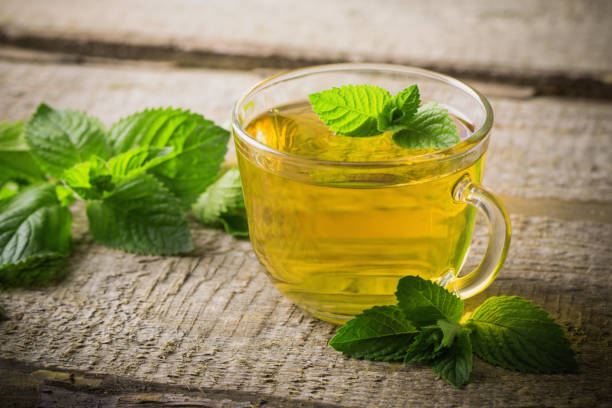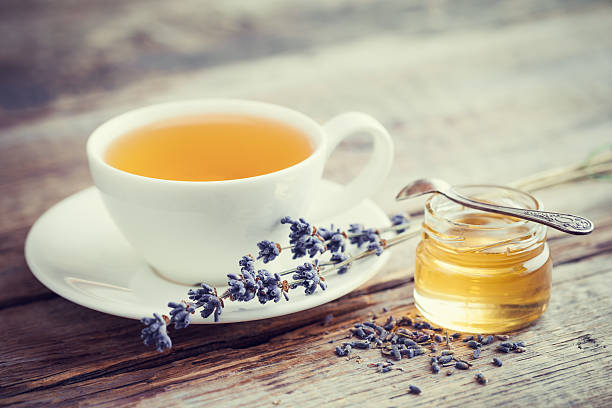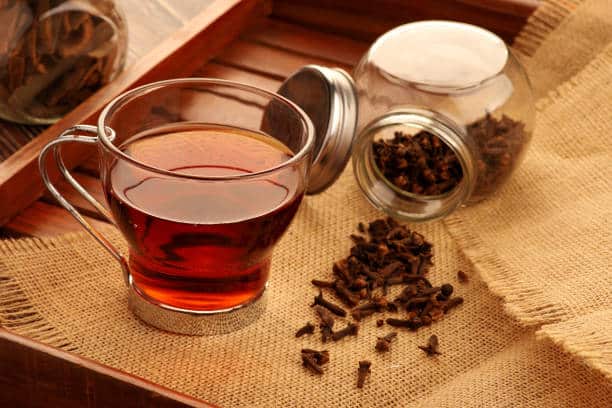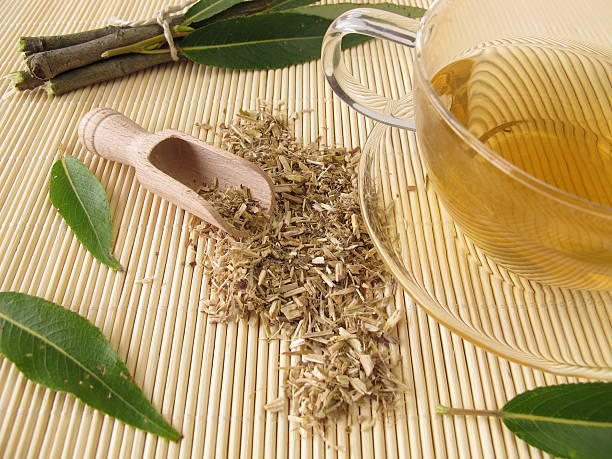Turns out that a hot cup of tea is more than just an enjoyable drink.
While many people have heard of the benefits of green tea, did you know that there are numerous other teas with incredible benefits as well?
And for headache sufferers especially, the news is even better.
While over-the-counter medications are often used to treat headaches, your favorite brews may just do the same. In some cases, even better.
Let’s get into some of the therapeutic properties of these teas, how they work, and what they can do for those nagging headaches you hate to have.
The scientific research doesn’t lie…

1. Peppermint Tea
A popular remedy for headaches, peppermint tea is particularly useful for tension headaches. Most commonly caused by stress, posture, and muscle tension, these headaches can be a real downer. Thankfully, the main compound in peppermint, menthol, has soothing, anti-inflammatory effects.
The reason peppermint helps is by promoting blood flow and reducing muscular tension. According to a study from The Journal of Ethnopharmacology, applying peppermint oil to the temples relaxes muscles in the head and neck. While this is a more direct way, drinking peppermint also shows similar benefits.
Drinking peppermint tea is merely a different delivery method for the menthol. It’s more gentle but also more sustained, having a cooling effect on the body. Peppermint tea specifically eases the muscles of the scalp and neck, which we all need from time to time in this stressful world!
For optimum results, consume one or two cups per day, or as needed. If you need quicker relief, consider applying diluted peppermint oil to the temples.

2. Ginger Tea
Long reputed for its anti-inflammatory properties, ginger is also a powerful plant for digestion and headaches. In fact, ginger inhibits the production of something called prostaglandins, which are body chemicals that lead to inflammation and pain.
According to the Journal of Phytotherapy Research, ginger powder showed the same efficacy as the medication sumatriptan in treating migraine headaches. The anti-inflammatory compounds in ginger, like gingerols, also play a key role in lowering pain and inflammation.
With ginger, you’ll have less discomfort, less pain, less inflammation, and less swelling!
Simply steep fresh ginger slices in hot water for five to 10 minutes or buy pre-prepared ginger tea bags. If you’re struggling with headaches, two to three ginger teas per day should certainly help.
RELATED: What Not to Do During a Migraine

3. Feverfew Tea
If you haven’t heard of feverfew, you’re not alone.
A traditional herb used to treat migraines and other headaches, feverfew has the active compounds that every headache sufferer needs. Its main compound, called parthenolide, has been consistently linked to reductions in the symptoms of migraines. This is due to the compound’s ability to reduce inflammation and blood vessel dilation in the brain.
In one study published in The Cochrane Database of Systematic Reviews, people who took feverfew regularly enjoyed a reduction in the frequency and intensity of their headaches.
While feverfew may work marvelously for headache sufferers, there are some things to consider. For one, it should not be used heavily if you are pregnant, breastfeeding, or taking meds that interact with it. Before consuming even one cup of tea, consult your doctor if you’re unsure.

4. Chamomile Tea
Known for its calming and relaxing properties, chamomile has long been used to relieve tension and promote relaxation. If you are prone to headaches triggered by stress or anxiety, chamomile is your friend! The tea contains plant pigments called flavonoids, like apigenin, that bind to receptors in your brain responsible for muscle relaxation.
According to a study from Phytomedicine, chamomile tea significantly reduces anxiety and stress in patients, which in turn helps with headache symptoms.
If your nerves are on edge and you’re looking to relieve some stress, definitely try one to two cups of chamomile per day. It’s recommended to do this in the evening, however, as chamomile can help with sleep quality.

5. Lavender Tea
Just like with chamomile tea, lavender tea helps to reduce headaches related to stress and anxiety. Thanks to its soothing effect on the nervous system, lavender has been shown to boost mood while lowering the severity of pain.
In fact, research indicates that lavender oil can help alleviate the symptoms of migraine attacks. One of its active compounds, linalool, helps relax the muscles and ease tension throughout the body.
Need to calm your nerves and reduce some stress? Try one cup of anti-inflammatory lavender tea per day, especially before bedtime.
It’s a great way to promote relaxation when you need it most and will reduce the swelling often associated with headaches and migraines.

6. Clove Tea
Known for its analgesic – or pain-relieving – abilities, clove has helped people with inflammation and discomfort for countless years. Its active compound, eugenol, is linked specifically to these properties. And if you combine it with other teas like peppermint and ginger, you get an especially powerful effect!
Clove tea also reduces inflammation, making it a solid one-two punch for pain and swelling. By inhibiting the chemicals in the body responsible for pain sensations, clove essentially ‘turns off’ the feeling.
For the best effects, steep two to three whole cloves in hot water for ~ 10 minutes. Enjoy it once or twice per day to improve your headache pain and inflammation.
RELATED: 5 Factors That Predict When a Migraine Will Strike

7. Willow Bark Tea
Used for centuries to naturally treat pain, willow bark is one of those teas that can make you feel better when all other things fail. Believe it or not, it actually contains salicin, which is highly similar to the active ingredient in aspirin.
So then, it’s probably no surprise that willow bark tea can provide significant relief for headaches, whether migraines or tension headaches.
This happens because the salicin contained in willow bark inhibits the release of prostaglandins, chemicals responsible for pain and inflammation.
Just remember: willow bark is powerful. If you have headaches or migraines, by all means, enjoy a cup or two in a day. However, if you are taking other pain medications, be sure to talk to a doctor first.
Overall, willow bark tea and the other teas in this article should be used as needed for headache pain. But it’s important to note that every person is different. You may notice great benefits or none at all. As always, speak to a healthcare provider for more traditional means of headache relief if these natural remedies don’t work.
And don’t forget, if you’re pregnant, breastfeeding, or taking certain medications, you need to consult a doctor before enjoying these teas.
Other than that, happy sipping!









